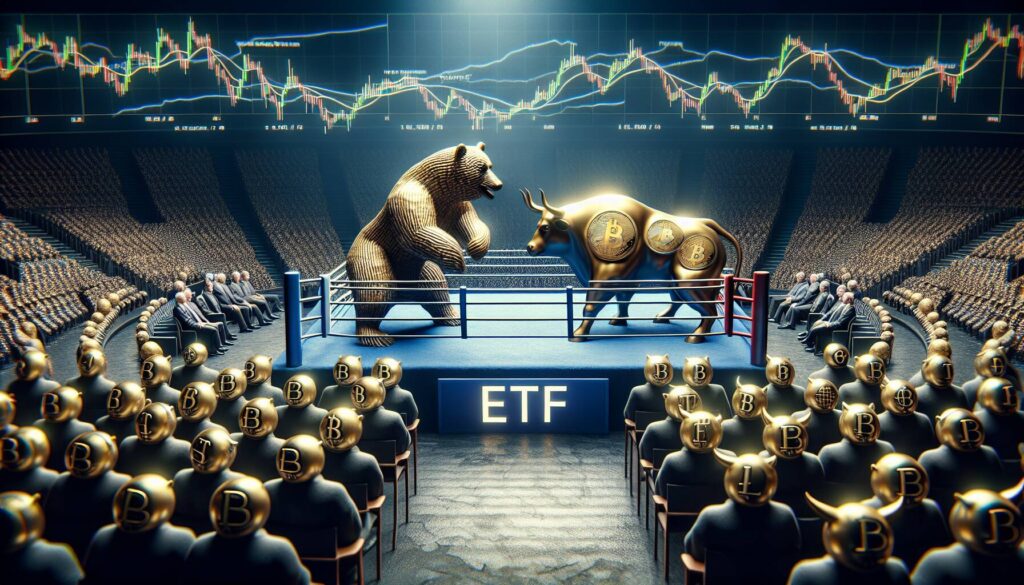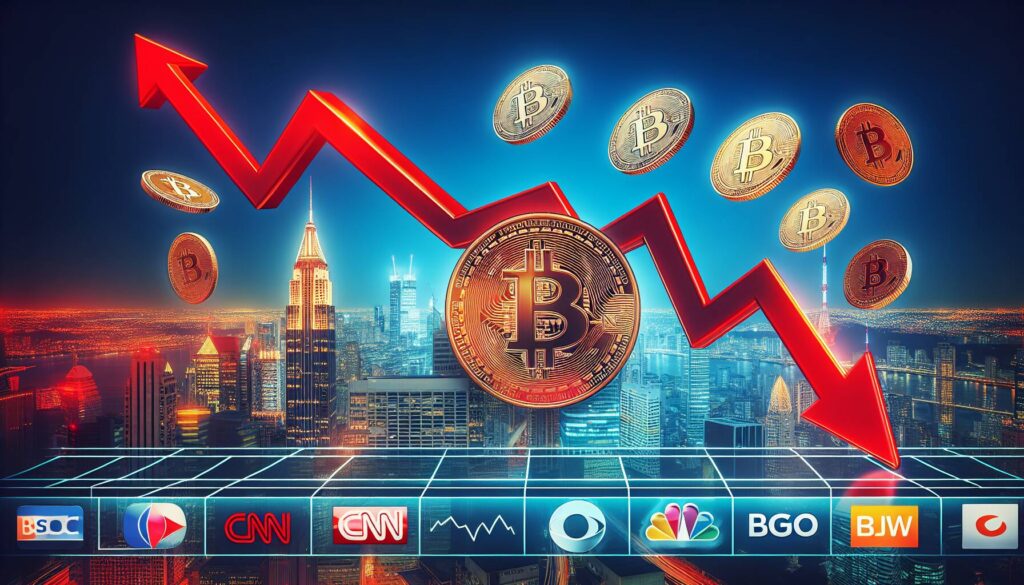In a surprising turn of events, U.S. stock futures are taking a hit as tensions rise over President Trump’s recently announced tariffs. Following the imposition of a hefty 30% tariff on imports from both Mexico and the European Union, the Dow futures are down nearly 200 points. This economic maneuver, aimed primarily at addressing issues related to fentanyl trafficking from Mexico, has created ripples through the financial markets, highlighting ongoing trade disputes between the U.S. and its partners.
On the other hand, amidst this volatile backdrop, the cryptocurrency market shows resilience, with Bitcoin reaching a new record high. This surge may reflect investors’ growing appetite for alternatives to traditional assets, particularly in times of uncertainty. As the political landscape shifts, market participants are keenly watching how these tariffs will affect both stock performance and the broader economy.
“As Trump announces these tariffs, the potential fallout on international trade discussions could have far-reaching implications.”
The dual narrative of declining stock futures combined with Bitcoin’s upward momentum captures a pivotal moment in the financial arena, where investors are navigating the complexities of tariffs, trade wars, and the allure of digital currencies. With ongoing tensions and unpredictable policies, the marketplace remains in a state of flux, prompting individuals and institutional investors alike to reassess their strategies in light of these developments.

U.S. Stock Market Reactions to Tariff Threats and Bitcoin Surge
The following key points highlight the recent developments in the U.S. stock market and their potential implications for readers:
- Trump’s 30% Tariff on Mexico and the EU
- Significant drop in Dow futures, nearly 200 points, indicates market concerns.
- Potential increased costs for consumers and businesses due to higher tariffs.
- Impact on Oil Prices
- Oil prices continue to rise amid tariff announcements, suggesting influence on global markets.
- Higher oil prices may affect transportation and product costs for consumers.
- Bitcoin Reaches New Highs
- As traditional stocks drop, Bitcoin’s rise indicates a shift in investment strategies.
- Readers may consider diversifying portfolios by investing in cryptocurrencies.
- Focus on Fentanyl Leading to Tariff Implementation
- Trump’s tariff strategy linked to broader concerns about drug trafficking from Mexico.
- Increased awareness of international trade policies and their social ramifications.
Market Reactions to Trump’s Tariff Threats: A Comparative Analysis
The recent news surrounding Trump’s announcement of a 30% tariff on Mexico and the European Union has sent U.S. stock futures tumbling, with Dow futures dropping nearly 200 points. This development illustrates a significant volatility within the stock market, reflecting investor anxiety regarding international trade relations. Both MarketWatch and CNBC highlighted the immediate repercussions of these tariffs, showcasing that such drastic measures might not only impact trade dynamics but also the overall market sentiment.
In contrast, Bitcoin has seen a notable surge, hitting new highs amidst the uncertainty in traditional markets, as reported by various financial sources. This phenomenon could suggest a pivot for some investors towards cryptocurrencies as a safer haven during times of geopolitical and economic uncertainty. The contrasting performance between the stock market and cryptocurrency can be an enlightening point for investors seeking diversification. Those wary of traditional equities may find this environment ripe for shifting investments towards digital assets.
For sectors heavily reliant on imports or international trade, such as manufacturing or retail, these tariffs could spell significant challenges, leading to increased costs and potential supply chain disruptions. On the flip side, domestic producers might experience a competitive advantage as imported goods become more expensive, potentially spurring local manufacturing efforts.
This situation also raises important questions about the long-term effects on consumer behavior. If tariffs lead to higher prices on goods, consumers may change their spending habits, favoring domestic products over imported ones. This shift could create opportunities for local businesses but might also lead to inflationary pressures that affect the broader economy.















